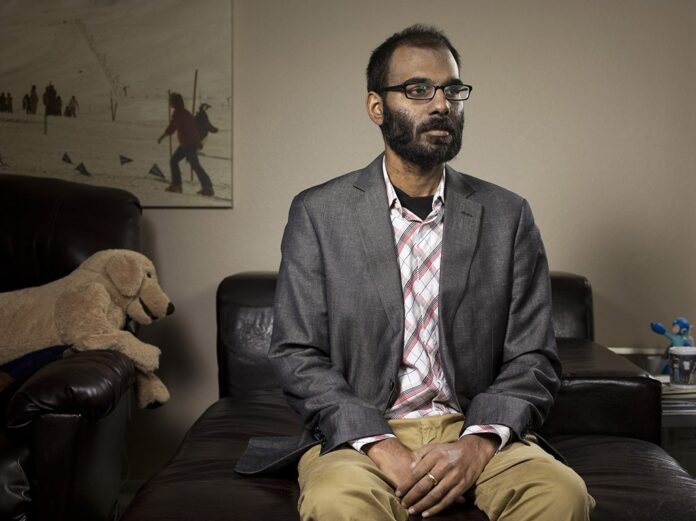The late neurosurgeon Paul Kalanithi narrates his journey of living a fulfilling life while battling lung cancer
By SARAH HAN — arts@theaggie.org
“When Breath Becomes Air” is an autobiography of Paul Kalanithi, a neurosurgeon and writer who was diagnosed with lung cancer in his late 30s and passed away in 2015. The book outlines his life, detailing the moral inquiries and dilemmas he has contemplated since childhood.
The book begins with a prologue that describes a patient’s CT scan images of a “lung matted with innumerable tumors, the spine deformed, and a full lobe of the liver obliterated,” only for readers to find out that Kalanithi himself is the patient.
I like how Kalanithi writes about death, which is a generally sensitive topic. It goes to show how unexpected obstacles are inevitable and the best way to overcome them is by accepting them — not pretending like they don’t exist or running away from them.
However, Kalanithi is also transparent about how difficult it is to accept death. There was a moment where he cried to his wife Lucy, which was unexpected since he seemed to be optimistic and stoic throughout the book. Nonetheless, it amplifies how scary and uncertain death can be, even for doctors and surgeons who regularly witness it.
What makes Kalanithi’s life so relatable is his progression from adolescence to adulthood. His childhood was characterized by curiosity, ambition and learning; for example, he moved to Arizona as a child and chose to acclimate to his new hometown by scavenging the desert plains for black widows, coyotes and more. As he grew into an adult, these characteristics transformed into wisdom, maturity and diligence.
But one element that stayed consistent since Kalanithi’s childhood was growth. Toward the end of the book, Kalanithi reflects on the idea of time, particularly how cancer had significantly shortened his. One specific segment stood out to me the most:
“You’re always thinking about what you’ll be doing five years down the line. But I don’t know what I’ll be doing five years down the line. I may be dead. I may not be. I may be healthy. I may be writing. I don’t know. And so it’s not all that useful to spend time thinking about the future—that is, beyond lunch.”
I was taken aback by how Kalanithi was willing to contribute to the world in any way, shape or form. Even in the face of death, he was formulating what he could do, which shows how humans, unwittingly or not, will always try to grow into a better version of themselves. In the grand scheme of things, writing or lunch may seem minute, but to Kalanithi, they were signs of powering through his cancer — and that, to me, was a lesson for sure.
The most heartfelt moments in the book were when his family appeared. Kalanithi grew up with two brothers and his parents, all of whom he characterized as hardworking and inspirational. Likewise, he greatly admired his wife Lucy, who motivated him to not only fight cancer but who was also beside him when he was a medical student at Yale. And probably the most precious to Kalanithi was his daughter Cady, to whom he dedicated the book.
Despite the obstacles, Kalanithi wrote hopefully in the last moments of his life. He dedicated a message to future Cady, which was intimate yet universal. He emphasized the importance of spreading joy and that it is one of the most crucial things in life.
Kalanithi expressed tremendous humility, empathy and insight, and this book perfectly reflects his legacy. I strongly recommend this book because it will leave you inspired, open-minded and most importantly, thinking about what you could contribute to the world.
If I could pick out one line that sums up the entire book, it would be this: “What makes human life meaningful?”
Written by: Sarah Han — arts@theaggie.org




